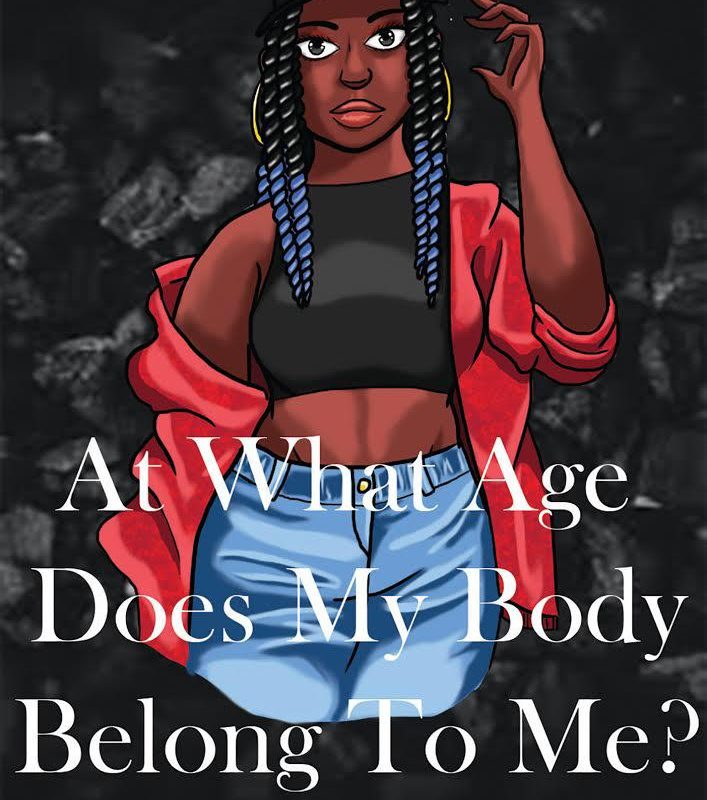“Why am I writing this? Because I want you to know. I want you to know that you killed me. You and your rules. You who have deemed me unworthy. You who have deemed me impure but yet stripped that very purity from my clenching bones. You who have watched silently as I fought this war and yet felt no cause to find me a reprieve. I want you to know that you killed me,” writes Amanda in her new book.
The question of what really makes a great feminist text has been rattled around for the better part of the millennia in both media spaces and gender-inclined symposiums. While consensus has often seemed to burrow more on it being built on the bedrock of the movement’s right values, supplementary explorations have indicated that it also needs sufficient wit, wisdom, energy and expressiveness to spur change beyond its time, and even perhaps beyond the ingenuity of its author.
Endlessly talented (filmmaker, producer, author, blogger) and wickedly humble, Amanda Tayte-Tait Marufu has been entertaining and inspiring women (and men) for years. Now, in her new memoir “At What Age Does My Body Belong To Me?” out today(Jan. 26), we get a glimpse behind the many faces she’s worn over the years and discovers, to our shock, that she’s every bit as bitter, hurt and anxious as we were always hoping she would be from her usual cutting-edge raw, uncut and unfiltered literary and visual expressions.
An aspiring all-round creative whose dreams and body freedom are squelched by her misogynistic society to the point of attempting to commit suicides, Amanda’s fearless and passionate story encapsulates the desire and disillusionment of being a young woman living in a continent where black means black and white denotes white. In this haunting memoir, Amanda, who is referred in the book as Mia, characterises the oppression (and triumphs) of women, the horrors of physical and sexual abuse, and the ongoing struggle to surmount the triple jeopardy of sexism, mental health stigmatisation and prejudication, as well as queerphobia, which is why it must become a quintessential novel for young people.
“How is it that in a society where we all know someone who is being or has been abused, we still think there isn’t a problem to speak of?” questions Amanda. “[…]Friends stand by, men who say they don’t support abuse, they don’t stop being that guy’s friend, they watch and pretend to disapprove from afar but guess what? Doing nothing is nothing but silent support.”
A seminal work brooded from Egyptian-American journalist and social commentator Mona Eltahawy’s “The Seven Necessary Sins For Women and Girls”, come for the incredible title, and stay to hear the eloquent and eccentric voices of womankind. Whether it’s Mia’s tenacious yet bespoke approach to anguish, abuse and trauma (though she tries to absorb her temper, it simmers below the surface just waiting to erupt), or Sunshine’s rebelliously erratic yet profound flow of consciousness, the sensitive and thought-provoking narrative runs the gamut of emotions and makes women (and young people) more impatient for change, but may also be turned to in dark hours when it feels change might never come.
Gender-based inequality remains the greatest global injustice, and the struggle against it spans millennia and continents. “At What Age Does My Body Belong To Me?” is a rude wake-up call for the society as it roars with anger at an unfair world that is constantly letting women down.
Whereas other feminism texts and its overall agenda have been berated for not being about equal rights for women, but socialists, anti-family political movements that advance misandry and encourage women to leave their husbands, kill their children, destroy capitalism and become lesbians, Amanda believes the fight needs all hands on deck. Inasmuch as she labels the patriarchy’s perception of love as “pain and darkness”, she still reasons for a comprehensive moral reclamation of humanity. She writes:
“As much as we are uplifting our women, we need to start re-educating our men. We need to raise better men. Men who are taught to love, men who are taught to feel, to empathize, men who aren’t taught to accept abuse as normal but challenged to do better. Men who are not raised in abusive homes, men who are not abused. Men who are taught what rape is, what abuse is, what sexual abuse is. Men who are taught to respect women. Men who are not shamed for showing or feeling emotion. Men who are not shamed for being who they are. For being caring or being vulnerable. Men who are not just allies But Men who refuse to stay silent!”
Though this is unquestionably an account of one (or maybe two) woman’s experience of womanhood and her own expedition to a sense of self and freedom from the ubiquitous shackles of patriarchy, Amanda breaks ground for anyone and everyone who is marginalised and misconstrued, and is fighting to define themselves on their own terms, as she writes,
“I’m woman enough to finally admit it.”
If her “It’s A Feminist Thing” blog or #NoFilter series did not cement Amanda’s reputation as a significant voice in young adult feminism, the politics of sexuality and mental health discourse, then this explosive memoir certainly will.

At What Age Does My Body Belong To Me is available here.























